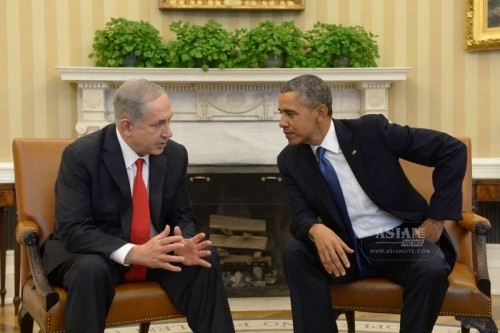
US President Barack Obama dismissed a suggestion by Israeli Prime Minister Benjamin Netanyahu that any nuclear deal with Iran be conditioned on the Islamic republic’s recognition of Israel.
“The notion that we would condition Iran not getting nuclear weapons in a verifiable deal on Iran recognising Israel is really akin to saying that we won’t sign a deal unless the nature of the Iranian regime completely transforms,” Obama told the National Public Radio in an interview.
“And that is, I think, a fundamental misjudgment,” he added.
The Obama administration is trying to sell to sceptics both at home and abroad a framework deal reached last week with Iran, under which Tehran agrees to limit its sensitive nuclear activities in exchange for phased lifting of sanctions by the US, the European Union and the UN Security Council.
Iran and the so-called P5+1 group comprising the US, Britain, France, Russia, China plus Germany are set to work even harder over the next three months to flesh out the framework deal with details to make for a final and comprehensive accord by the end of June.
Netanyahu, who had further strained his relations with the Obama administration by criticising the nuclear negotiations with Iran, had blasted the tentative pact as one that “would threaten the survival of Israel”, insisting on “clear and unambiguous Iranian commitment of Israel’s right to exist” be included in any final agreement with Iran.
“I want to return to this point: We want Iran not to have nuclear weapons precisely because we can’t bank on the nature of the regime changing,” Obama told NPR. “That’s exactly why we don’t want to have nuclear weapons. If suddenly Iran transformed itself to Germany or Sweden or France then there would be a different set of conversations about their nuclear infrastructure.”